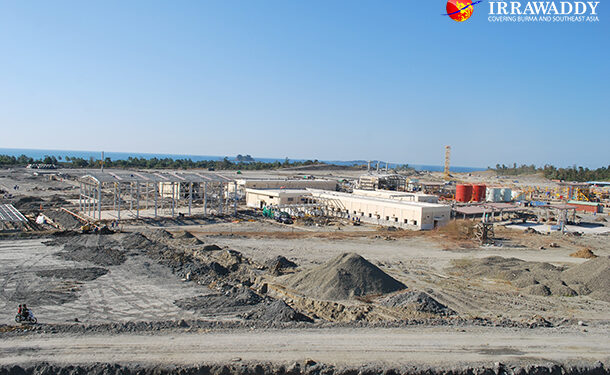CHIANG MAI, Thailand — Debate over the approval of the Kyaukphyu special economic zone in Arakan State has dragged on in Union Parliament, with an expected Monday vote on the 4,289-acre project deferred until later in the week.
Khin Saw Wai, a lawmaker for Arakan’s Rathedaung constituency, said that residents of the state wanted reassurance that the project would have adequate transparency and accountability mechanisms before parliamentarians gave their approval.
“We are not opposing the project,” she said, “but we want guarantees from the government on local employment and development promises, as well as transparency around compensation if locals need to be moved from their land.”
Around 85 percent of investment into the Kyaukphyu SEZ is slated to come from Chinese companies, while the rest will come from local firms. The project will include housing, an industrial zone and deep-sea ports, with plans to begin construction in 2017.
Despite being rich in natural resources, Arakan is the second-poorest state in Burma, with a lack of local job opportunities, decrepit infrastructure, and ongoing tensions between Buddhist and Muslim communities after the mob violence of 2012.
Since the motion to approve the Kyaukphyu project was tabled in parliament, local civil society groups have urged lawmakers to delay the project until a new government led by the National League for Democracy (NLD) takes the reins at the end of March.
Over 650 villagers from within the project site, who will be affected once the project begins, gathered in Kyaukphyu on Sunday to urge the government to halt the project until it had provided employment opportunities and regional development programs.
Tun Kyi, a member of Kyaukphyu Rural Area Development Association, told The Irrawaddy that the project posed a serious threat to local livelihoods.
“We have been making our lives on this ground and many of us are agricultural workers. We need a great deal of support, jobs and vocational skills when the development projects arrive.”
Despite years of discussion around the proposal, many locals were unaware of the project until recently, when employees of the government’s Kyaukphyu SEZ Management Committee began erecting fence posts around an area encompassing 21 villages in order to delineate the project site. Khin Saw Wai said villagers had been told that housing and infrastructure for the SEZ would not disrupt local communities.
“Only residents from two village tracts were aware of the project,” she claimed.

















